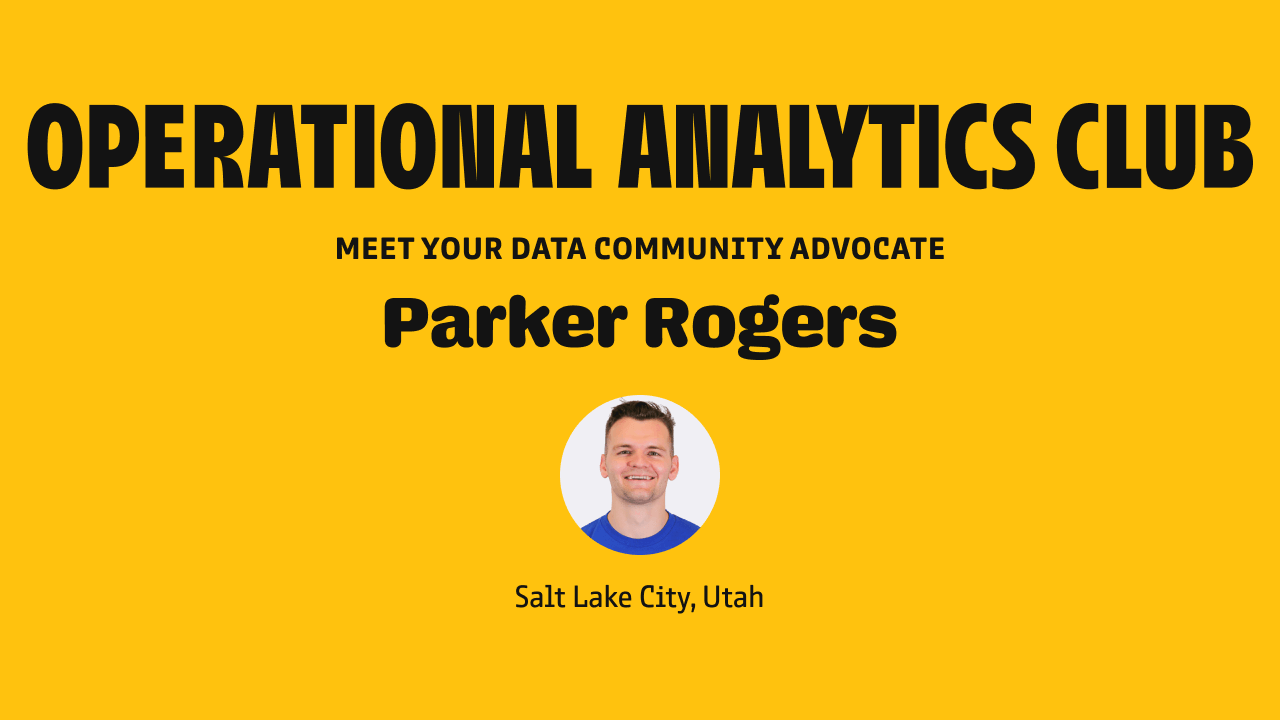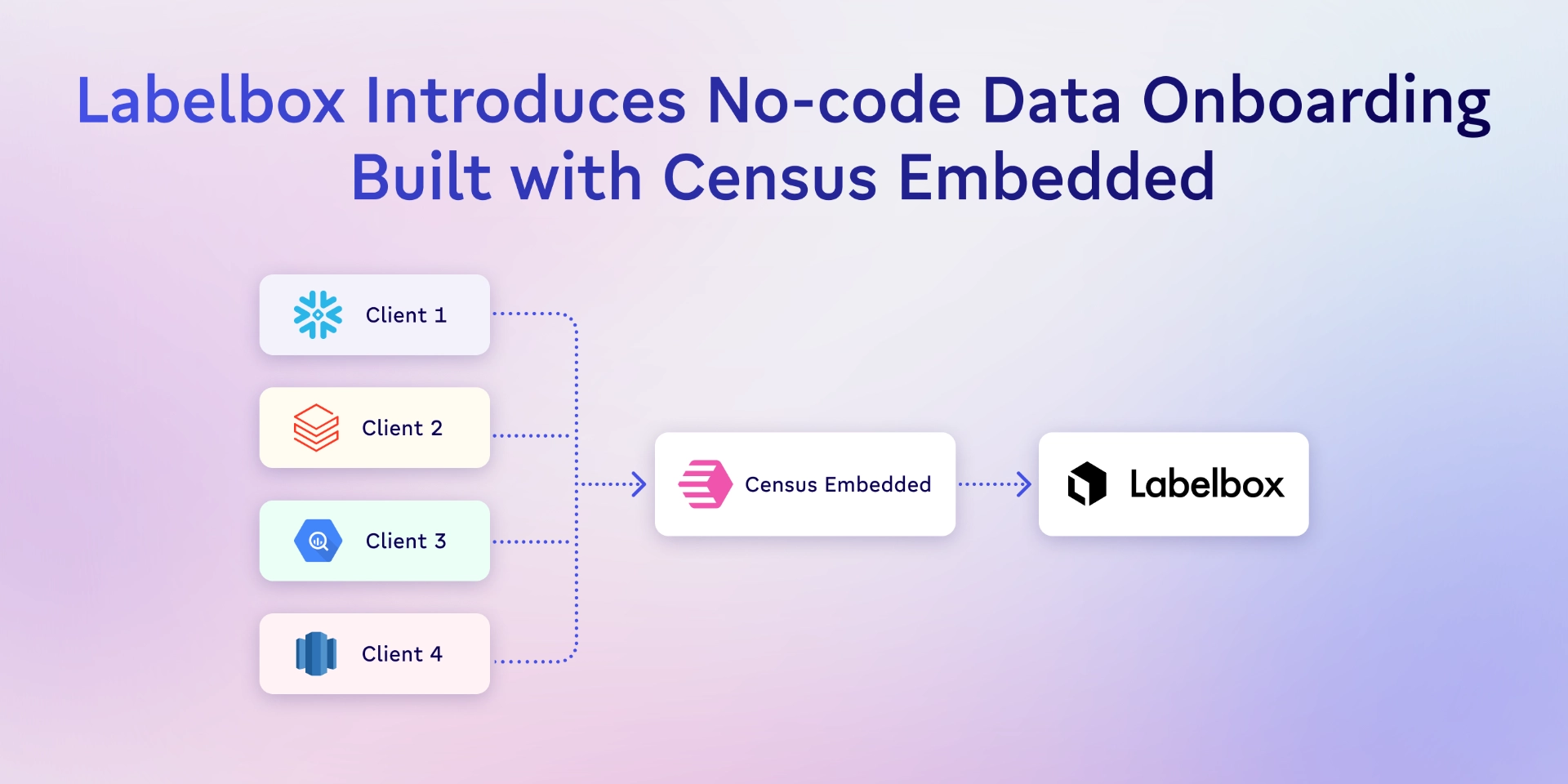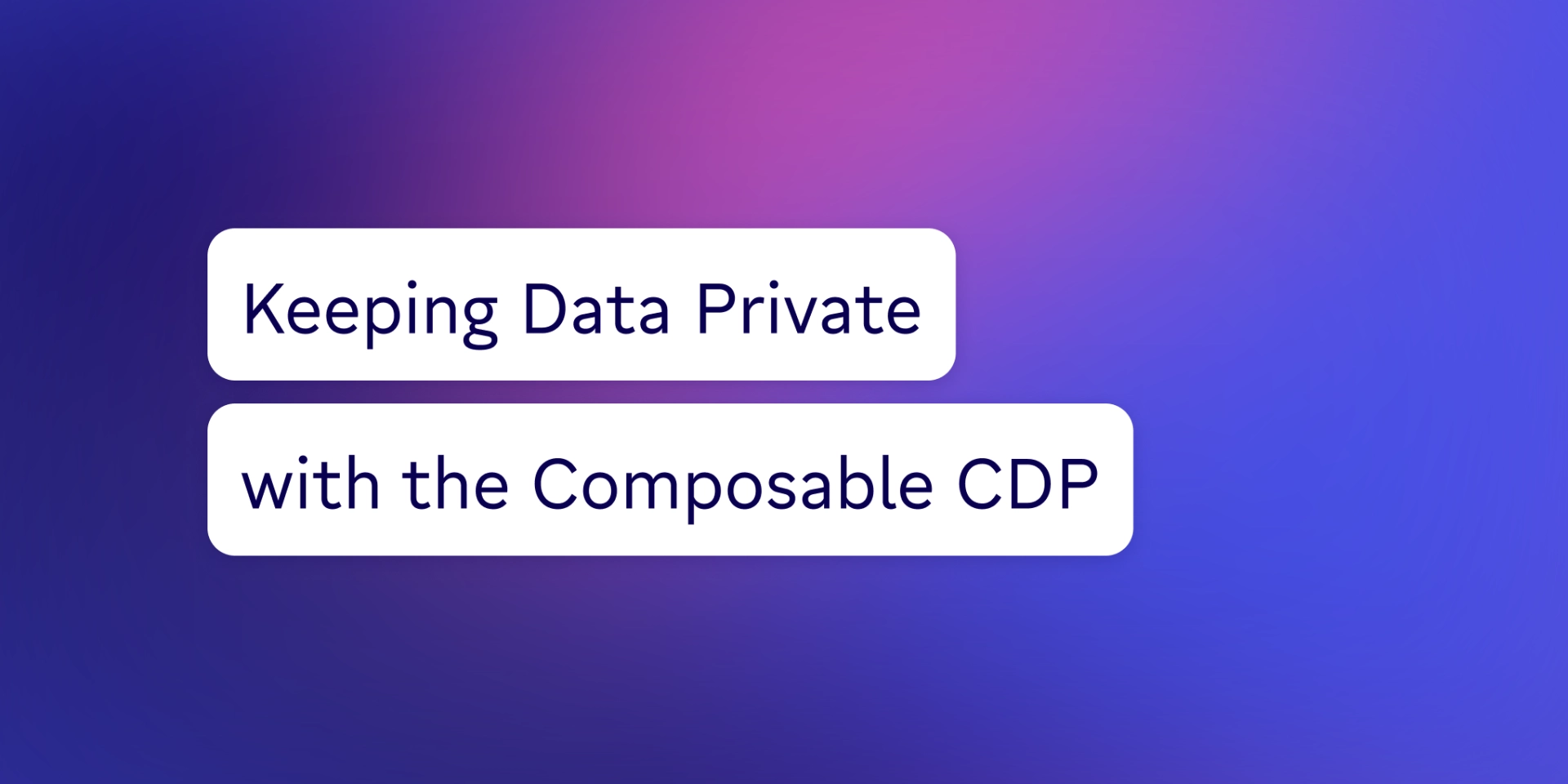TABLE OF CONTENTS
Meet data community advocates: Parker Rogers | Census

Parker is a data community advocate at Census with a background in data analytics. He's interested in finding the best and most efficient ways to make use of data, and help other data folks in the community grow their careers. Salt Lake City, Utah, United States

Did you know Census has launched a community where all your friends, mentors, and peers in data are already hanging out? That’s right. The data industry’s hottest new club is the Operational Analytics Club and you can join today. ✨
While Census is facilitating the community (that’s just a fancy way of saying we’re paying the bills for the tools and domain to keep it running), the OA Club isn’t about us. It’s about you, the people who make up the data industry and who are building its future.
As such, we wanted to take a step out of the way and give the stage to some of the awesome people you’ll see in the community every day: Our dedicated data community advocate team.
While some companies like to call their community managers “evangelists,” we think that sounds a bit sales-y. After all, the folks interfacing with our community members every day are there to advocate for you not sell to you. Because, at the end of the day, the future of data isn’t about any one specific tool, but what the people using those tools can do now that they couldn’t do before.
With that, we’re handing the mic over to our data community advocate of the week: Parker Rogers.
How did you get your start in data?
My first real job was as a developer. I made iPhone applications and taught courses on iOS development. I liked engineering, but doing the marketing and curriculum for the course was more enjoyable. As such, I decided to go to business school in college.
The typical business admin wasn’t interesting to me, so I picked a tiny major called information systems. It married my technical background to my interest in “business” (whatever that means), and it introduced me to data science and analytics. I was immediately hooked.
My first real-world data position was at a marketing agency. I was the token data person, and therefore did everything with the word “data” in it: warehousing, analytics, engineering, etc. It was a great experience, and it ensured me that my profession will always be attached to data.
Why did you choose to join Census?
I know Benn Stancil says that bullet points “strip the humanity out of ideas” and are “snappy takeaways without supporting evidence, all chorus and no verse” but I’m going to have to use them anyways to give you the TL;DR:
- Census solved a problem I have always struggled with: Getting data from point A to point B.
- Census makes data do more than just keep score. That rhymes, so I might have to put a ™ at the end of it.
- I got along great with the team throughout the interview process (and they have a sweet flamingo mascot).
Here’s the less TL;DR version:
More specifically, Census syncs data from a data warehouse to operational tools. I can’t count on my hands the number of times stakeholders wanted me to send specific data to their sales/marketing/product tools. I understood why syncing data from a warehouse to an operational tool was valuable, but the time investment to accomplish it was astronomically high. Census solves this issue very well, and it made me want to join the team.
I’ve dedicated 100s of hours to building dashboards/BI visualizations. To nobody’s surprise, these dashboards were rarely utilized. Sure, dashboards serve a valuable purpose–keeping score over time, understanding data, etc.–but the results are often discouraging, and stakeholders are reluctant to use them for strategic decision making. As a result, dashboards are often ignored, and my work would be valueless.
Rather than only using data for scorekeeping, you can use data to drive action. Rather than only sending data in a system of record (dashboard), you can send it to a system of action (sales/marketing/product tools). Example: Send product usage data to a customer success tool so your team can prioritize support tickets. Another example: Use sales outreach data to segment audiences for marketing email drip campaigns.
Lastly, I knew that if I joined it would be more than a short term gig. I could learn, grow, and make an impact with the rest of the team.
What’s most exciting about the OA Club to you?
Finding resources for operational analytics can be difficult. I’ve done the endless Google searching to find answers to my operational analytics needs. It goes something like this:
- Google search a problem
- Click on an article and “command f” until you find a potential solution
- Realize that the solution doesn’t work/the blog is a tactic to get you to buy a product
- Repeat
This process is both tedious and time consuming. Useful resources are scarce, especially when you are dealing with a new field like reverse ETL and operational analytics.
In the OA Club, we’re asking and answering people’s OA and data-related questions, and everyone is able to get the answers they’re looking for (no sales pitch, I promise).
What tools and skills do you feel most comfortable teaching others about?
I’m most comfortable teaching SQL, data tools related to marketing and advertising, and reverse ETL best practices. If your question falls into those categories, I’m your guy. Otherwise, you might want to reach out to our other advocate Rob Watters (or DM either of us and we’ll find you the expert you need if we can’t answer your question).
What tools and skills are you most excited to learn about from the community?
I’m most excited to improve my dbt, python, and operational analytics best practices.
I want to learn everything there is to know about modeling data using dbt, and using said models efficiently and reliably across an organization. Why python? Well, it’s the fastest growing programming language in the world, and it’s a gatekeeper to dozens of data problems I want to tackle.
Operational analytics is something I’m quite familiar with, but I want to better understand the situations in which it’s most useful, and when folks can get by with traditional analytics instead.
What do you like to do in your free time?
My free time consists of skiing, exercise, playing guitar, and watching movies/tv. Let’s be honest. It’s not in that order. Netflix is most of America’s free time, and I am not an exception!
Skiing, exercise, and playing guitar keep me sane and happy. Without them I think I’d probably lose my mind.
If you were an animal, what would you be?
Easy. Mountain goat. I am one with them. Why?
- They reside in the Rocky Mountains. I was born in these mountains, and I will likely die in them, too.
- They spend most doing a so-called uneventful activity: grazing. I can relate. Sitting at a computer most days may not be the most eventful activity from the outside, but I enjoy it, and it allows me to do other things that keep me alive and happy (continue to the next bullet).
- If you observe mountain goats for long enough (months), you will occasionally see them do something extraordinary. These extraordinary events could be as fascinating as sprinting down a mountain, or as idiotic as jumping off a cliff to their demise. That’s me.
Where can the community find you on the Internet?
Don’t Google search me. I’m not that cool yet. In fact, you’ll find a computer engineer named “Parker Rogers” out of San Diego California with a PhD in economics. He ranks number one in SEO right now, but I’m determined to pass him up. Until then, you can find me via Twitter, LinkedIn, email, or the OA Club.





